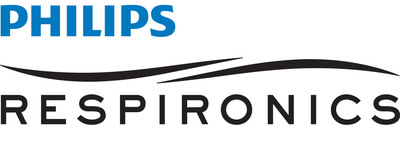Philips Response To ResMed Update On Phase IV SERVE-HF Study Of Adaptive Servo-Ventilation (ASV) Therapy In Central Sleep Apnea And Chronic Heart Failure
MURRYSVILLE, Pa., May 15, 2015 /PRNewswire/ -- Respironics, Inc., a Philips business, today provided the following response to ResMed's Update on Phase IV SERVE-HF Study of Adaptive Servo-Ventilation (ASV) Therapy in Central Sleep Apnea and Chronic Heart Failure.

On May 13, 2015, ResMed issued a press release and a related Urgent Field Safety Notice. This report described a statistically significant 2.5 percent absolute increased annual risk of cardiovascular mortality for those randomized to a ResMed adaptive servo ventilation (ASV) therapy compared to the control group. In the patient population with LVEF </= 45%, 10.0 percent of the ASV group experienced a cardiovascular death each year compared to 7.5 percent of the control group, representing a 33.5 percent relative increased risk of cardiovascular mortality (HR=1.335, 95%CI=(1.070, 1.666), p-value= 0.010).
Philips is actively evaluating the information provided by ResMed and examining if this might impact the medical care of patients who use Philips BiPAP autoSV/BiPAP autoSV Advanced devices. As part of this ongoing investigation, we are working with ResMed in order to better understand their study data. We are also evaluating post market surveillance data, public adverse event data and other published data to identify and assess other safety concerns that may be present.
Until we complete our investigation, based on the ResMed data, we strongly recommend clinicians adhere to the recommendations that have been published by ResMed and by regulatory authorities cautioning against the use of ASV therapy in patients with symptomatic chronic heart failure (NYHA 2-4) and reduced LVEF</=45%, AND moderate to severe predominant central sleep apnea. ResMed is advising physicians prescribing ASV therapy to not place new patients in the at-risk population on the devices and to evaluate current patients; a discussion about whether to discontinue ASV therapy should occur if a current patient is found to be in the at-risk population. Therefore, as a precaution, physicians should assess individual risks before prescribing BiPAP autoSV/BiPAP autoSV Advanced therapy for the at-risk patient population. No other patient populations have been identified as at-risk for adverse outcomes.
Philips Respironics BiPAP autoSV/BiPAP autoSV Advanced devices are currently indicated to provide non-invasive ventilatory support to adult patients (>30 kg/66 lbs.) with obstructive sleep apnea and respiratory insufficiency caused by central and/or mixed apneas and periodic breathing. These devices are not approved or labeled for the treatment of heart failure.
We will continue to provide updates to the medical and service provider communities as additional information becomes available to ensure the continuous safe and effective use of our devices.
Philips Media Contact
Mario Fante
Email: mario.fante@philips.com
Phone: 1-603-560-9226
Logo - http://photos.prnewswire.com/prnh/20140219/NE67640LOGO-b
To view the original version on PR Newswire, visit:http://www.prnewswire.com/news-releases/philips-response-to-resmed-update-on-phase-iv-serve-hf-study-of-adaptive-servo-ventilation-asv-therapy-in-central-sleep-apnea-and-chronic-heart-failure-300084444.html
SOURCE Respironics, Inc.
 Help employers find you! Check out all the jobs and post your resume.
Help employers find you! Check out all the jobs and post your resume.
